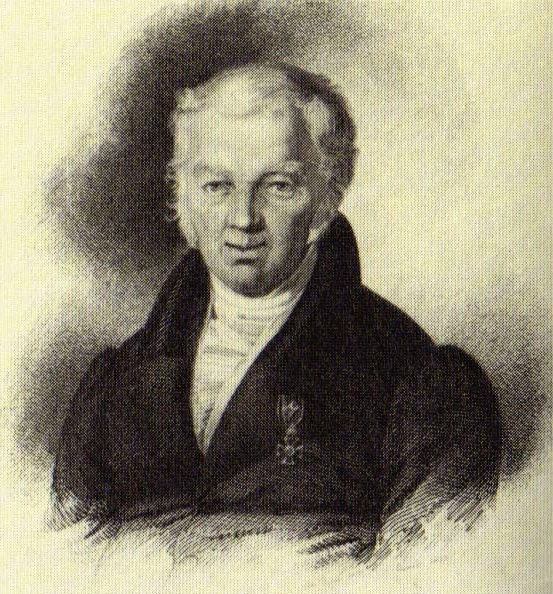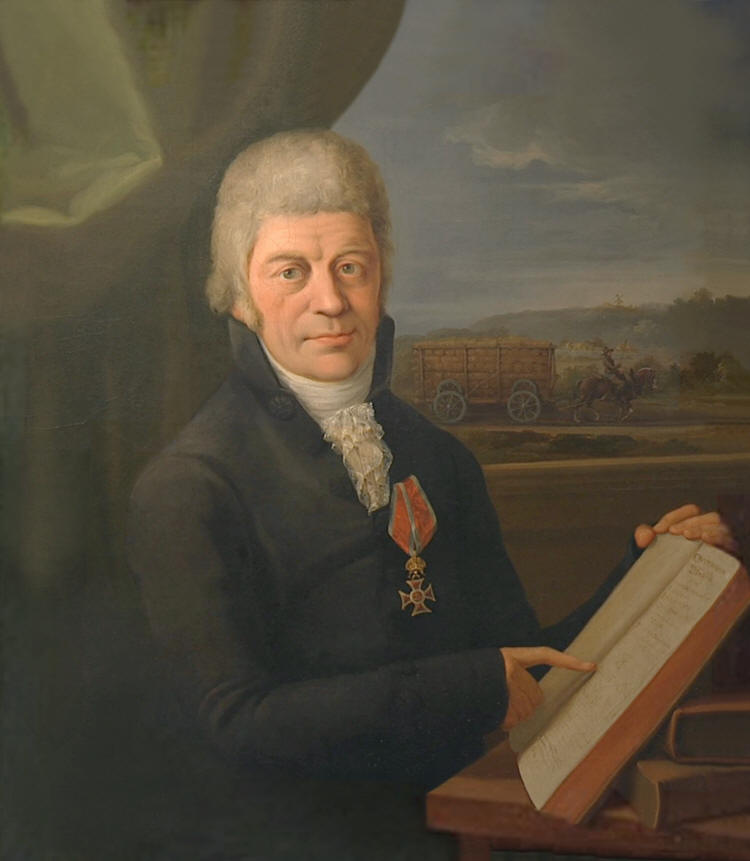<Back to Index>
- Mathematician and
Physicist František
Josef Gerstner, 1756
PAGE SPONSOR


František Josef Gerstner (German: Franz Josef von Gerstner, Czech: František Josef Gerstner; February 23, 1756 - July 25, 1832) was a Bohemian physicist and engineer.
Gerstner was born in Chomutov, where he studied at the Jesuits gymnasium, after which he studied mathematics and astronomy at the Faculty of Philosophy in Prague between 1772 and 1777. In 1781, he started to study medicine in Vienna, but quickly decided to work in the astronomical observatory instead. In 1789, he became professor of mathematics there.
In 1795, Gerstner became a member of the government
commission which tried to improve higher technical
education in the Austrian empire. Following his
suggestion, the old Prague engineering school Česká
stavovská inženýrská škola was converted to a
polytechnic school in 1803. Gerstner became director of
the polytechnic in 1806 and also professor of mechanics
and hydraulics. He taught there until 1823, when he was
forced to stop due to an illness. The polytechnic still
exists today as the Czech Technical University in Prague
(ČVUT), and the institute for artificial intelligence and
cybernetics research at ČVUT bears the name Gerstner
Laboratory. He died, aged 76, in Mladějov.
From his published works, the most important ones were Theory of waves (1804) and Handbuch der Mechanik (1831; Handbook of mechanics). This last book appeared in three volumes, with 1400 subscribers.
His work focused on applied mechanics, hydrodynamics and river transportation. He helped to build the first iron works and first steam engine in Czech lands. In 1807, he suggested the construction of a horse drawn railway between České Budějovice and Linz. This railway was later actually built between 1827 and 1829 by his son František Antonín Gerstner (German: Franz Anton (Ritter) von Gerstner, 1796, Prague - 1840, Philadelphia).